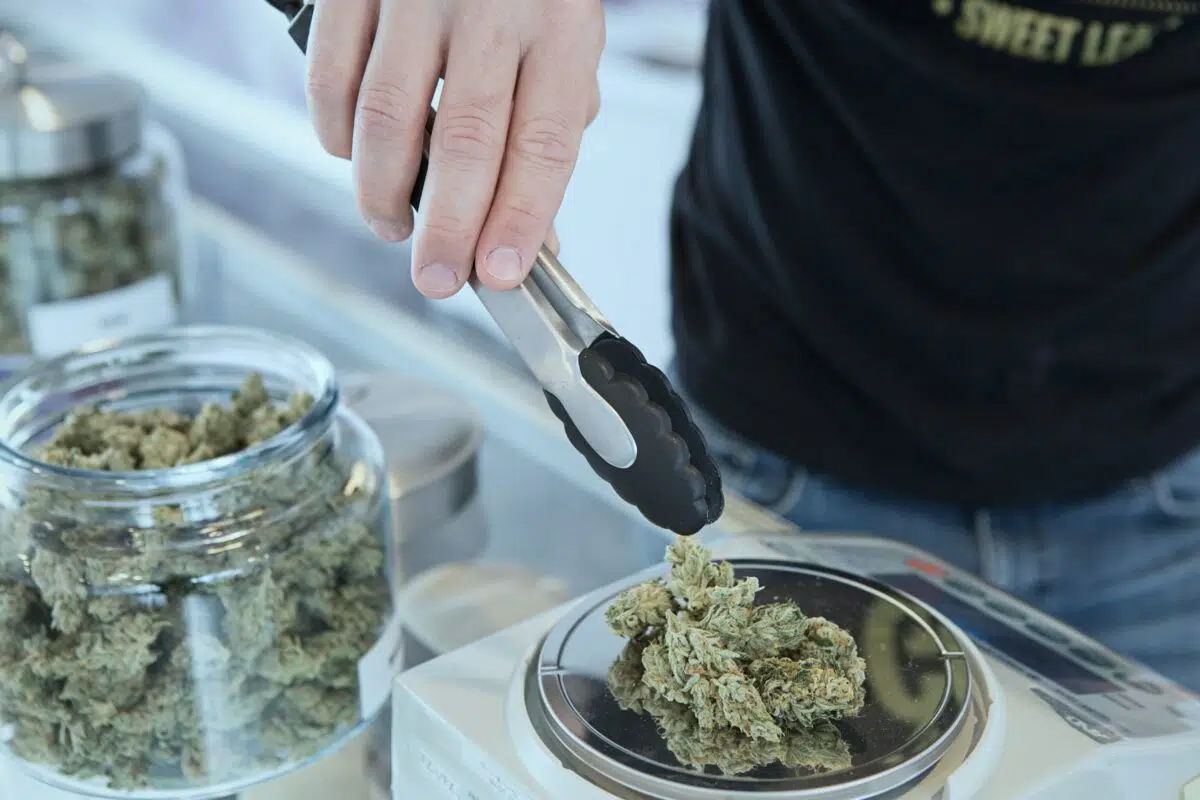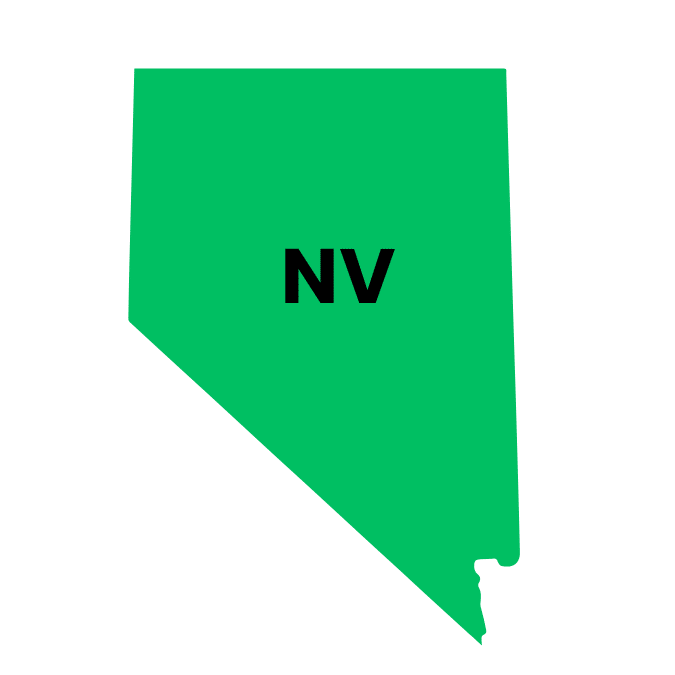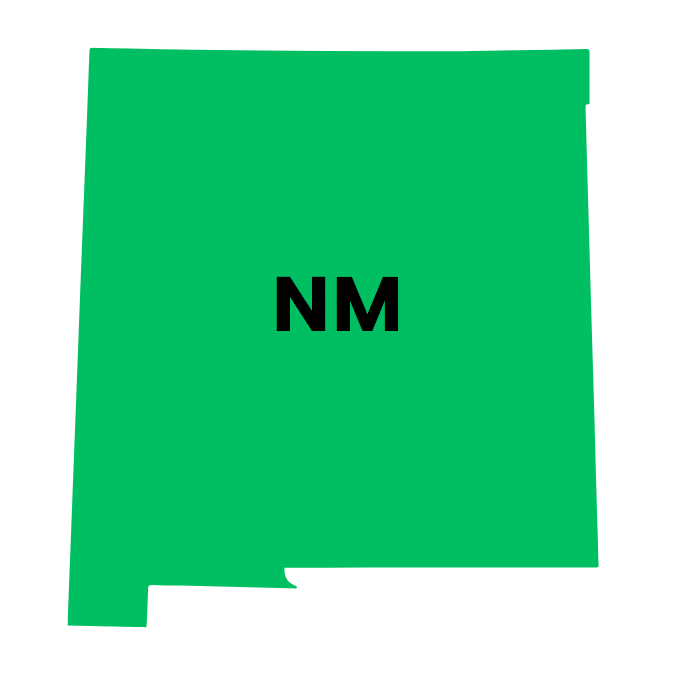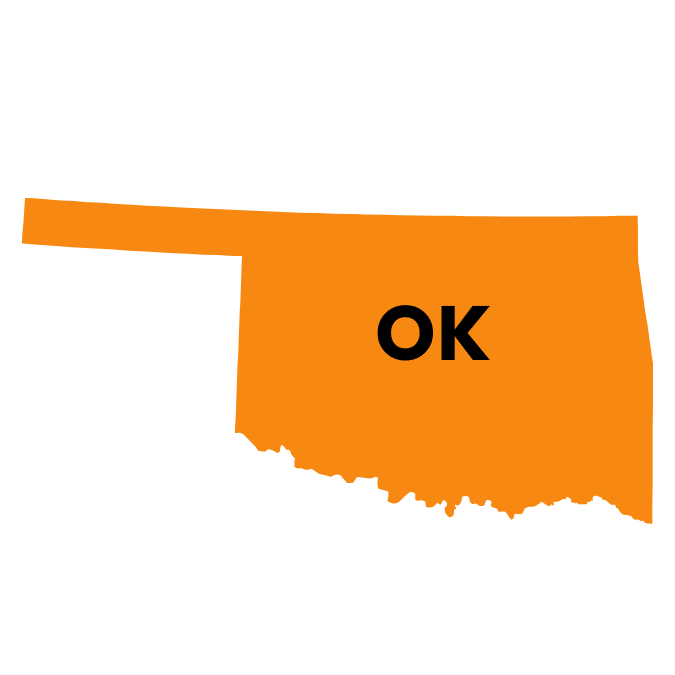The actual cost of opening a dispensary varies greatly. Several factors are at play, such as the state you’re operating in, the size of your store, and whether you decide to vertically integrate your supply.
This post explores the reality of these costs and the steps to open and manage a dispensary.
Cost of Opening a Dispensary
The cost of opening a cannabis dispensary ranges from $250,000 to $2 million, depending on the size of the facility. Most dispensaries are anywhere between 800 and 4,200 square feet.
According to industry estimates, the average cost of opening a dispensary is around $700,000 for an average-size facility of around 1,800 square feet.
Here’s a peek into the estimated costs of opening an 1,800 square foot dispensary:
Feature | Price |
Application Fee | $5,000 |
Retail License Fee | $25,000 |
Real Estate (1,800 sqft) | $200,000 |
Renovations & Space Improvement | $50,000 |
Legal Fees & Professional Services | $30,000 |
Security & Surveillance | $30,000 |
Business Equipment | $25,000 |
Monthly Tech | $2,500 |
Inventory ($/lb) | $1,600 |
Annual Staffing | $240,000 |
Other Capital Needs | $100,000 |
TOTAL | $709,100 |
Real Estate And Construction Cost To Open A Dispensary
When choosing a retail space for your dispensary, it’s crucial to consider factors such as foot traffic, local zoning laws, and proximity to competitors, as these can significantly impact your business’s success. Additionally, costs like property rental, security requirements, and local taxes will vary depending on the region, making it essential to budget carefully to avoid unexpected expenses.
Zoning and Permitting Fees
- Before securing a location, dispensary owners must navigate local zoning regulations and obtain the necessary permits, which can range from a few thousand dollars to tens of thousands, depending on the city and state.
Real Estate Costs
- Rent or purchase prices for an 1,800-square-foot dispensary can vary widely based on the property’s location, with urban areas generally commanding higher prices than suburban or rural spaces.
- Because of the stigma surrounding cannabis stores, there are some complications with federally insured banks. Hence, the average square footage price for retail cannabis can cost up to double what most other businesses would pay.
- You can expect to pay between $100-400/square foot per year. For a 1,800 sq. ft. dispensary, that means between several $170,000 and $720,000 in yearly rent for a typical property.
Structure Costs
There are four types of structures to consider when building a dispensary. Grow America Dispensary Builders puts the estimated average cost of building each type as follows:
- Strip mall conversion: $500,000 – $850,000
- Free-standing conversion: $350,000 – $1,000,000
- Existing building renovation: $600,000 and up with $100,000 contingency
- New Construction: $900,000 to $3,500,000

Asset Requirements To Open Dispensary
Many states require a certain minimum capital to apply for a dispensary license. These requirements are typically extremely steep. The good news is that in most states, they only apply to medical dispensaries and not recreational applicants. An exception is Arizona, where $500K in liquid assets are needed to apply for a recreational dispensary license.
Here are some state capitalization requirements to think about:
- Arkansas: $200,000 overall with $100,000 in liquid assets
- Arizona: $500,000 in liquid assets
- Florida: $5,000,000 performance bond submission
- Nevada: $250,000 in liquid assets
- Ohio: $250,000 in liquid assets
- Pennsylvania: $2,000,000 with $500,000 in liquid assets
Dispensary Licensing Costs
You must pay an application fee to open a dispensary of any size. If your application is approved, you must pay your licensing fee. Additionally, you must obtain a separate license if you own the grow operation and the dispensary (something called “vertical integration”). While most states allow vertical consolidation, a few require it, and some forbid it.
Between application fees (some of which are non-refundable), license fees, and renewal fees, certification costs can add up quickly. These fees also vary greatly depending on the state.
State-By-State Guide to Dispensary Application, Licensing and Renewal Fees (2025)
Refer to the following chart for a state-by-state guide to dispensary application, licensing, and renewal fees. As you can see, the state you choose to operate within can dictate your costs.
State | Status | Application Fee | Licensing Fee | Annual Fee | Social Equity Program? |
Medical | $2,500 | $30,000 – $50,000 | $30,000 – $50,000 | No | |
Recreational | $1,000 | $1,000 – $5,000 | $1,000 – $5,000 | No | |
Recreational | $5,000 | $25,000 | $5,000 | Yes | |
Medical | $7,500 | $2,500 – $25,000 | $10,000 – $32,000 | No | |
Recreational | $135 – $20,000 | $2,500 – $96,000 | $2,500 – $96,000 | Yes | |
Recreational | $4,000 | $1,610 – $8,200 | $460 – $1,780 | Yes | |
Recreational | $25,000 | $5,000 | $25,000 | Yes | |
Recreational | $5,000 | $10,000 | $10,000 biennially | Yes | |
Medical | $146,000 | $0 the first year | $1.33 million | No | |
Medical | $5,000 – $25,000 | $50,000 – $200,000 | $50,000 – $100,000 | No | |
Medical | $5,000 | $75,000 | $50,000 | No | |
Recreational | $100 – $100,000 | $30,000 – $60,000 biennially | $30,000 – $60,000 biennially | Yes | |
Medical | $5,000 | $5,000 – $40,000 | $5,000 – $40,000 | No | |
Medical | $5,000 | $30,000 | $15,000 | No | |
Medical | $5,000 | $150 | <$100,000 | No | |
Recreational | $250 | <$2,500 | <$2,500 | No | |
Recreational | $6,000 | $25,000 every five years | $25,000 every five years | Yes | |
Recreational | $100 – $600 | $10,000 | $10,000 | Yes | |
Recreational | $6,000 | $15,000 | $15,000 | Yes | |
Recreational | $500 – $10,000 | $2,500 | $5,000 | Yes | |
Recreational | $2,500 – $10,000 | $7,420 | $7,420 | No | |
Recreational | $1,000 | $5,000 | $5,000 | No | |
Recreational | $5,000 | $20,000 | $6,600 | Yes | |
Medical | $3,000 | $20,000 | <$10,000 | No | |
Recreational | $1,000 | $20,000 | $10,000 biennially | Yes | |
Recreational | $2,500 | $2,500 | $1,000 | Yes | |
Recreational | $1,000 – $3,000 | $4,500 | $4,500 biennially | Yes | |
Medical | $5,000 | $90,000 | $90,000 biennially | No | |
Recreational | $5,000 | $70,000 | $70,000 biennially | Yes | |
Medical | $2,500 | $2,500 | $2,500 – $10,000 depending on annual tax | No | |
Recreational | $250 – $500 | $3,500 | $4,000 | Yes | |
Medical | $5,000 | $30,000 | $5,000 | No | |
Recreational | $125,000 | $30,000 | $30,000 | No | |
Medical | $2,500 – $5,000 | $9,000 | $9,000 | No | |
Medical | $2,500 | $50,000 – $67,000 | $50,000 – $67,000 | No | |
Recreational | $1,000 | $10,000 | $10,000 | Yes | |
Recreational | $5,000 | $80,000 | $64,000 | Yes | |
Recreational | $266 | $1,062 | $1,062 | Yes | |
Medical | $2,500 | $10,000 | $2,500 | No |
Capital And Banking Costs
While traditional banks may hesitate to work with cannabis businesses, there are still viable financing options available for those looking to open a dispensary. Private lenders and local credit unions in cannabis-friendly states can offer the necessary financial support, though they often come with higher fees and compliance requirements.
- Limited Access to Traditional Banking: Large legacy banks, like Chase, typically avoid working with cannabis businesses due to the industry’s high-risk nature, similar to pornography, firearms, and gambling.
- Private Lending: About 90% of cannabis financing comes from private sources, such as venture capital and private equity. These sources often charge high-interest rates or take significant equity in return for their investment.
- Local Credit Unions: Expect to pay around $5,000 monthly in fees to remain in financial compliance. Some local credit unions, especially in states like California and Nevada, offer services to cannabis businesses.
Security Costs
From surveillance systems and secure entrances to trained security personnel, ensuring safety compliance can add significant costs to your budget. Installation costs, monitoring fees, and staffing expenses will vary depending on the size and complexity of your operation.
- Security Installation Costs: Total security installation will cost anywhere from $10,000 to $300,000, depending on dispensary size and layout (vaults, rooms, cameras, etc.).
- Surveillance Requirements: 24-hour surveillance with HD cameras (1920 x 1080 resolution), costing approximately $35/month per camera for monitoring and storage.
- Armed Security Guards: Expect to pay around $70/hour for certified guards.
- Compliance Training: State-required employee training in theft prevention, emergency response, and access control within three months of hire. This will tack another bill onto your budget.
Ready to take your cannabis business to the next level?
Boost store performance and improve sales with the advanced features and tools KORONA POS offers.
Insurance Coverage Costs
Insurance for dispensaries typically ranges between $1,000 and $5,000 per year. Since most dispensaries must work with non-admitted carriers, insurance premiums can vary based on factors such as shop size, location, and policy coverage.
Key Insurance Types and Costs
- General Liability Insurance: Covers accidents, property damage, and customer injuries. Costs $500 to $2,000 annually, depending on location and coverage limits.
- Worker’s Compensation Insurance: Protects employees in case of injury or illness on the job. Costs $800 to $3,000 annually, based on payroll size and risk factors.
- Product Liability Insurance: Covers claims related to product defects or harm caused by cannabis products. Costs $1,000 to $5,000 annually, depending on product type and sales volume.
- Non-Admitted Insurance Carrier Fees: Since most insurers are non-admitted, additional fees may apply, though policies typically lack state regulatory backing.
Staffing Costs
Operating a dispensary requires a diverse team, including knowledgeable budtenders, experienced store managers, and compliance managers. The average dispensary staffing costs are as follows:
- Budtenders: $15-20/hr
- Store Manager: $20-$35/hr
- Compliance: $25-$38/hr

Dispensary Software Costs
Make sure to use a cannabis-friendly point-of-sale (POS) system that easily facilitates compliance with whichever seed-to-sale software your state requires. KORONA POS is fully integratable with multiple track-and-trace regulatory systems like Metrc and Biotrack.
- Compliance Management: KORONA POS includes built-in compliance features to help dispensaries meet state regulations, such as tracking sales limits and managing customer data securely.
- Point of Sale (POS) System: A powerful POS (like KORONA POS) integrates with your CRM and inventory management, helping to prevent stock shortages and streamline sales.
- Inventory Management System: Use a retail inventory management system to track stock levels and ensure popular products are always available.
- Loyalty Programs: Implement strategic merchandising and effective loyalty programs to reward customers and encourage repeat visits.
- Advanced Cash Control: Due to their predominantly cash-based nature, dispensaries require enhanced cash security. KORONA POS includes built-in security measures like a cash journal and customizable employee permissions.
Get started with KORONA POS today!
Explore all the features that KORONA POS has to offer with an unlimited trial. And there’s no commitment or credit card required.
Marketing Costs
Aim to allocate at least 5% of your annual revenue to marketing efforts.
A dispensary generating $500,000 in yearly sales should budget approximately $25,000 for marketing, equating to about $2,000 monthly.
This budget should cover various marketing channels and promotional efforts to reach and engage your target audience.
Inventory Costs
Cannabis prices can vary widely based on factors like growing techniques, genetics, and local market conditions. Conduct thorough research to determine sourcing strategies that ensure your products meet customer demand.
- Cannabis Prices: As of early 2024, the average price for a pound of cannabis was around $1,000 nationwide on a commercial level. Prices can fluctuate based on region, quality, and supply-demand dynamics.
- Merchandising Strategy: The cost of developing a merchandising plan that reflects the style and vibe of your dispensary varies depending on the scope of your merchandising strategy. Expect to pay between $500 and $2,000 for initial setup and branding.
- Vertical Integration Considerations: Vertical integration can significantly increase your initial investment and operational complexity. Initial setup for cultivation can range from $50,000 to $250,000 or more, depending on scale and local regulations.
- Building Relationships with Cultivators: Establishing strong relationships with reliable cultivators can help secure consistent inventory at favorable prices.

Cost of Opening a Dispensary: Other Factors to Consider
Opening a dispensary involves navigating a complex landscape filled with unique challenges and considerations. Here are some critical factors to keep in mind:
1. Limited Federal Tax Deductions
Unlike most businesses, dispensaries cannot claim federal tax deductions for common expenses like rent, payroll, utilities, and security due to the federal classification of cannabis as a controlled substance.
- Deductible Costs: You can deduct the cost of goods sold (COGS), meaning the expenses incurred in acquiring the products you sell can be subtracted from your gross income before federal taxes are calculated.
2. Social Equity Cost Reduction
Social equity laws were designed to create opportunities for individuals disproportionately affected by the war on drugs, including people of color, female business owners, veterans, and those with prior marijuana convictions.
- Restrictions: Some regions, such as Illinois and Denver, only allow new dispensary licenses to be issued to social equity candidates, potentially easing entry barriers.
3. Microbusiness Fee Structures
Some states offer a microbusiness designation for smaller cannabis operations, typically with specific requirements such as local residency of owners, smaller dispensary size, and fewer employees. Microbusiness fees are often significantly reduced. For example, in New Jersey, microbusiness fees are legally mandated to be 50% lower than standard fees.

How Much Can Dispensary Owners Make?
On average, owners can expect to earn between $100,000 and $250,000 annually, but those with larger operations or multiple locations may see profits exceeding $1 million.
Dispensary owners’ earnings can vary significantly based on factors like location, size, and market demand. While initial investment and operational costs are high, savvy dispensary owners can capitalize on the growing cannabis market to achieve substantial returns.
Are Dispensaries a Profitable Business?
Dispensaries can be highly profitable businesses, especially in states where cannabis is legalized for recreational and medicinal use. With the growing demand for cannabis products, many dispensaries experience strong sales, often reaching hundreds of thousands to millions of dollars annually.
However, profitability depends on various factors, including location, competition, operational efficiency, and effective marketing strategies. While challenges such as regulatory compliance and limited banking options can impact profit margins, dispensaries that adapt and innovate within this evolving market can thrive financially.
Get Your Dispensary Running Smoothly With KORONA POS
No matter what size your retail cannabis business will be or what state you choose to operate in, you should use a dependable, robust, compliance-ready point-of-sale system from day one.
KORONA POS cannabis dispensary clients enjoy built-in inventory, sales, and employee analytics to get the most out of their data. Give us a call today to speak directly to a member of our team and get a quote for our modern, cloud-based dispensary POS system!

Speak with a product specialist and learn what KORONA POS can do for your business.
FAQs: The Cost of Opening a Dispensary
Where is it cheapest to open a dispensary?
At this moment, Oklahoma is the cheapest place to open a dispensary. Their licensing application fee is only $2,500, and they don’t require capitalization minimums. In addition, the real estate, construction, and overhead costs are lower than any other legal state.
The cost of dispensary licenses varies depending on the state you want to open in, as well as whether you want a medical or recreational license. Expect to pay between a couple thousand and several hundred thousand dollars, with an average in the tens of thousands, to obtain a license.
As far as ease of acquiring licensing and approval, Massachusetts currently has the most streamlined process. However, factoring in overall financial needs, Oklahoma requires the least amount of start up capital to open a dispensary. With other factors such as legality, license availability, taxes, and market forces, Oregon, Colorado, and Michigan are also top contenders.
Writing a business plan for a dispensary is very similar to any other retail business. There are some cannabis-related details that you will need to include in your outline, such as plans for finding “green” real estate, acquiring proper licensing, ensuring compliance and security, handling cash, and procuring loans from marijuana-friendly investors.



















































